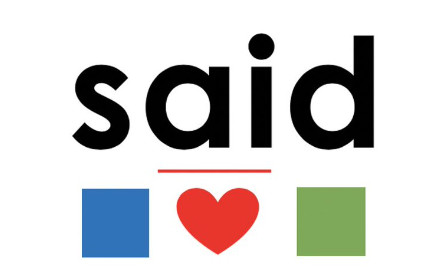A few months ago, I had occasion to correspond and speak with Lisa Hanifan, who by her own admission, was an “angry teacher” and a mom who later “felt guilty as a parent.” You see, Ms. Hanifan didn’t know what she didn’t know.
My colleague, Lisa, has NOTHING to feel guilty about—neither as a teacher nor a parent.
I ‘met’ her after a totally on-line conversation as part of the Facebook Group Science of Reading. We later had a nice conversation by phone. Ms. Hanifan’s experience more than validates the notion that ‘change is possible and change is good’. I want to share her story with you. I enthusiastically applaud her efforts on all fronts.
LISA’S STORY
Lisa Hanifan began her career as a first-grade teacher. By her own admission, she shared that she “thought I knew how to teach reading—and even received accolades for my pedagogy.”
She joined the FB Group-Science of Reading-What I Should Have Learned in College in 2020, and proceeded to discover and fuel her passion in large part as a teacher and ultimately as a parent. First, Lisa participated in professional development through the AIM Academy in Philadelphia, and then went on to complete LETRS training. Lisa became more knowledgeable about how the human brain learns to read and spell. She went on to continue learning and reading, spending time reading Natalie Wexler’s The Knowledge Gap. Reading this book altered how she taught vocabulary and comprehension skills to her students—and likely how she spoke with her own children at home both in conversation and about what her children were reading as part of their own schoolwork.
Lisa became known in her state of Massachusetts as “a literacy champion”, and was asked to work on the Massachusetts Literacy Guide. With her newfound knowledge of how to teach literacy using methods aligned with The Science of Reading, she wrote this article for Edutopia in February 2022 outlining precisely how and why she made changes in her classroom to benefit her students. Lisa stated, “I realized that a shift in my practice was vital if I wanted to reach all of my students.”
“I realized that a shift in my practice was vital if I wanted to reach all of my students.”
~Lisa Hanifan
LISA’S RATIONALE AND CHANGES
You can read the full article, but let me summarize:
- Phonemic Awareness/Phonological Awareness


Image by neo tam from Pixabay Slinky for Sound Blending Image from Reading Rockets Elkonin Boxes for Sound Counting
Lisa started using fast paced instruction using manipulatives such as colored chips to represent phonemes, and an old-fashioned Slinky to both pull apart words into their individual sounds (phonemes) and put together individual sounds (phonemes). Pulling apart words into their sounds is known as ‘segmenting’ (a necessary precursor to spelling); putting together sounds to form words is known as ‘blending’ (a necessary precursor to reading). Lisa also began using what are known as Elkonin Boxes to represent sounds in words. Both student engagement and achievement soared in her classroom.
- Use of a Sound Wall v. a Word Wall

Lisa took down her Word Wall (arranged by beginning letters in words), replacing it with a Sound Wall (arranged by beginning phonemes in words). One of her students, Charlie, was confused because he wondered why his name was in the ‘C’ section when the first sound in his name was /ch/ and not /k/. Good observation from the mind of a 6-year-old, right?
- Word Work
Lisa spent time revamping her instruction to focus more on actual direct instruction rather than having her students rotate through ‘centers’ where they completed independent activities such as silent reading and worksheets.
- “Heart Words” practice instead of endless “Flashcards” review (also known as “Sight Words” or “Snap Words”)

Lisa stopped spending instructional time having her students simply memorize words by rote and sending home practice for already spent parents in favor of teaching her students the parts of high-frequency (often seen/used in reading and spelling) that “don’t follow the code”. In reality, this is far simpler for students and more highly motivating to boot. Only 15% of all English words end up being non-phonetic.
- Application: Use of Decodable Text

Lisa realized that she needed to spend “far more time having her students practice reading [text with] the concepts she was teaching” using texts allowing for that practice. These are known as ‘decodable texts’. For more information on decodable texts and where to find them, click here, courtesy of The Reading League. Lisa abandoned “small group guided reading”, where she spent only 15-20 minutes with each group reading and coaching her students on the ‘story of the week’, using the pictures to assist her students with the reading. Lisa stated that “her students felt successful because the passages felt so familiar”, containing the words following the patterns that had been taught during the ‘Word Work’ parts of her instruction. Lisa adopted more of a ‘Gradual Release Approach’, where she modeled for her students “I Do”, modeled with her students “We Do” , until her students were able to complete the tasks independently (“You Do”). Try this approach, parents and caregivers!
- Exposure to Authentic Text

To bolster both vocabulary and comprehension, Lisa read vocabulary and language rich text to her emerging readers, thereby exposing them to words and ideas they were not yet able to read independently. This exposure served to boost both her students’ vocabularies and background knowledge, both of which have been shown to improve language and reading comprehension.
PARENTS!! READ THIS!!

Ms. Hanifan was “angry about the kids in her class” when they experienced difficulty learning, furthermore stating, “I felt guilty as a parent.” You see, her own child was found to have dyslexia in 9th grade! Lisa wished she would have known far sooner, as she would have “fought for him” to receive assistance as a younger child. Luckily, she reports he is doing very well at the present time.
“My students had no one to advocate for them and that made me very angry.” Many teachers have no say in the curricula they are being asked to teach–this is my add-on.
Image by Mizuno K on Pexels
Ms. Hanifan, as a licensed special education teacher, elementary teacher, reading specialist, and literacy leader, further stated, “what’s good for special education and mutli-lingual students is good for all students.” I couldn’t agree more since the science of how the brain learns to read is more clear now than ever before. It’s just that special education and multi-lingual students require different pacing, more repetitions, and oftentimes more instruction in language (vocabulary/comprehension).
THE TAKEAWAY
Do you, as a parent, specifically know how your child(ren) is/are being taught literacy skills—that would include reading, spelling, and written language? Never feel that you cannot ask questions of your child(ren)’s teachers and school administrators.
Follow this great advice:
“It’s important for parents to be educated.”
“Giving access to teachers [about Science of Reading] is giving access to parents–teachers are a pathways to caregivers.”
“Parents must be their children’s advocates.”
~Lisa Hanifan
Keep the passion for learning burning! You cannot be held responsible for not knowing what you don’t know—but you are responsible to further your learning on behalf of our next generation! With so much press available about The Science of Reading, it is far easier for teachers and parents to find out what they may not have previously known. This article by Karen Vaites entitled What’s next for literacy coverage in 2024? (January 2024) is a great place to start.
For more complete information about Lisa, check this bio out! To become more educated, also check out the My Favorite Resources tab on my website!
